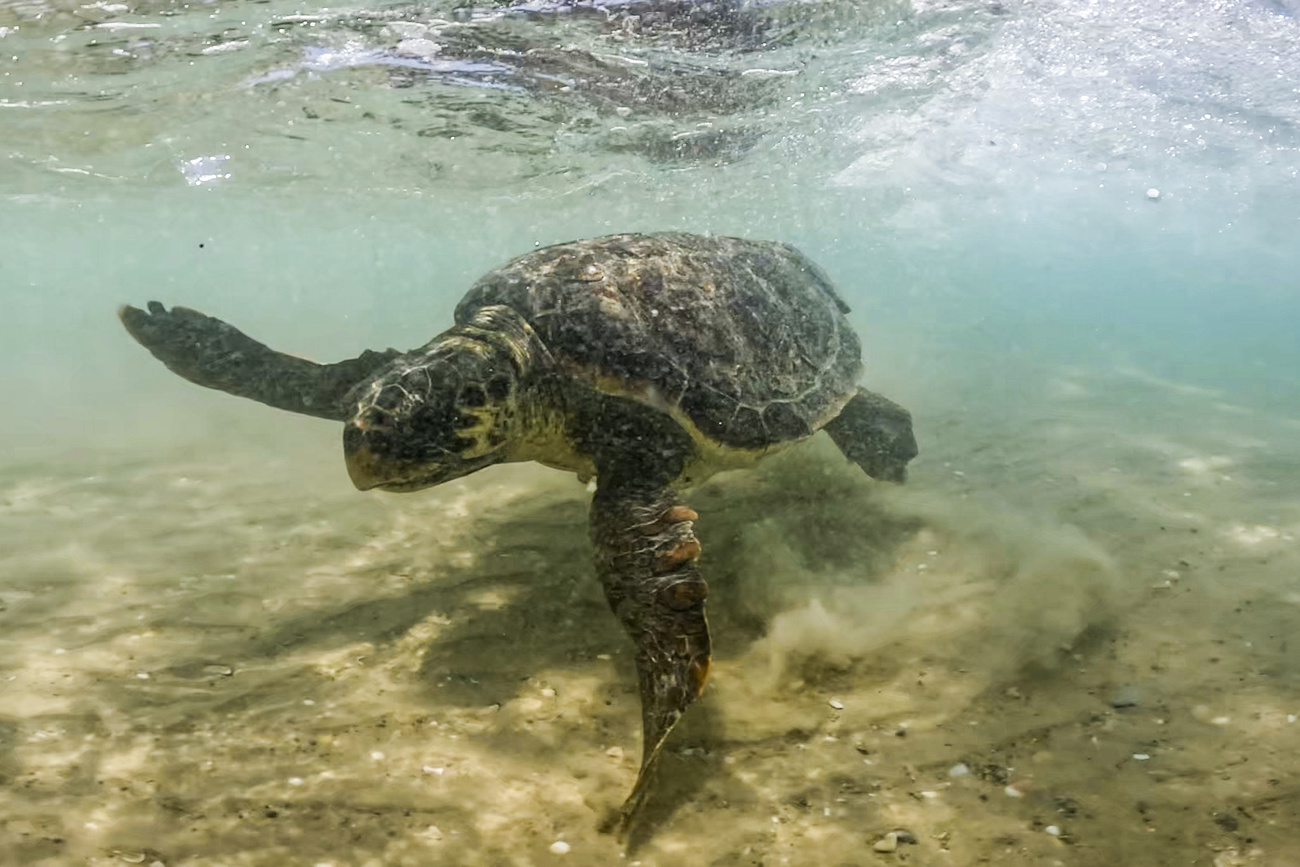
Switzerland Today
Dear Swiss Abroad,
A Swiss-led study has revealed that turtles have not changed size during evolution, but on the other hand, cross-border wolves packs have significantly increased in the last few years and are now posing great challenges to authorities in Switzerland and its neighbouring countries.
And if these are enough animal stories for you, we also look at why Switzerland risks paying up to CHF1.75 billion if some US fighter jets are not delivered on time.

In the news: possible costly delays in US fighter jets, Russian sanctions in Switzerland, AI and teachers and turtles.
-
Switzerland risks paying billions if some jets from the United States are delivered late. The delivery of US F-35 fighter jets has already been delayed in some countries, and if this were the case for Switzerland, the Alpine country would have to pay up to CHF1.75 billion ($1.99 billion).
- British activist and financier Bill Browder has called on Switzerland to apply sanctions against Russia and align with European Union policy. Browder also opposed the idea of returning the confiscated funds to sanctioned Russians involved in the Magnitsky affair. His goal is to isolate Russia financially from the rest of the world and “Switzerland is part of the problem”.
- With more and more students and teachers using artificial intelligence (AI) tools in the classroom, sensitive personal data is at risk.The Swiss Teachers’ Association is now calling for a set of rules about AI and sensitive data.
- Swiss study shows turtles have not changed size during evolution. Turtles do not follow the general rule that today’s species are on average larger than their distant ancestors, according to a Swiss-led study.

Better relations with the EU and Swiss banks accounts: is this what the Swiss Abroad need?
As part of our election guide ahead of October’s vote, we’re looking at what the six main political parties in Switzerland are planning to do for the Swiss Abroad. Today’s the turn of the Radical-Liberals who have decided not to have their own list of Swiss Abroad candidates and instead promote indirect representation in parliament.
On top of proposals about e-voting, health insurance and direct representation, the party has focused on a better development of the relations between the European Union and Switzerland. Since a large proportion of the Swiss Abroad live in Europe, the international branch hopes to resume the negotiations on a framework agreement. In particular, the Radical-Liberals are rooting for Switzerland’s participation in international programmes, such as Horizon Europe.
The party has also taken to heart the cause of owning a Swiss bank account. For years the Swiss Abroad have claimed that they are discriminated against when it comes to banking. Helen Freiermuth, president of Radical-Liberals International, explained that they have repeatedly advocated in parliament for bank account access for citizens abroad, “but there is no right to a Swiss bank account if you are Swiss.”
Here you can read our full coverage on the party’s proposals for the Swiss Abroad.

Killed in France and protected in Switzerland: the challenges of dealing with wolves crossing borders.
Last year, a female wolf from a cross-border pack was shot in France, but only a few kilometres away, in Switzerland, she was actually protected.
This almost surreal situation could become more frequent than expected because an increasing number of wolves are crossing borders between Switzerland and its neighbouring countries, including France, Germany and Italy.
Today, Swiss public radio, RTSExternal link, reported that the number of wolves in neighbouring France has almost doubled in one year and more and more of them are crossing the border. Similarly, in Italy there were only three cross-border packs in 2020 and now there are eight. This rapid increase is posing serious challenges to authorities, mainly because countries have different rules on when to shoot a wolf.
For example, although hunting controls have been relaxed in Switzerland, rules still remain stricter in the Alpine country, where only game wardens can shoot a wolf if they threaten humans or cattle. In France, on the other hand, 19% of the wolf population can be killed.
With France set to adopt a new wolf plan for the period of 2024 to 2029, the Swiss Wolf Group is hoping for better collaboration between the countries, to avoid problems like double counting the wolves, losing track of them, but also shooting during breeding season.
More

In compliance with the JTI standards
More: SWI swissinfo.ch certified by the Journalism Trust Initiative








